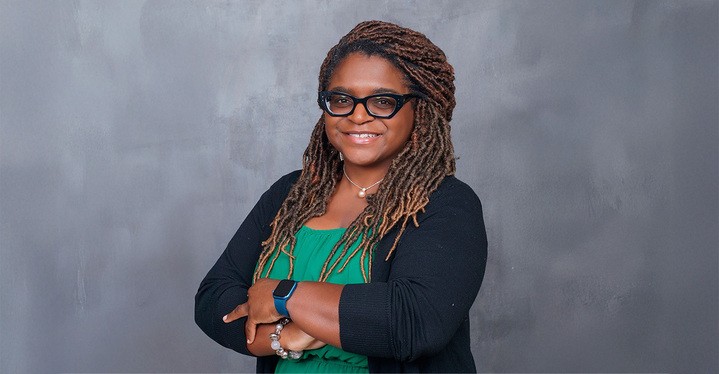Dr. Celeste Simmons Explains How Clinical Assessments Enhance Family Court Rulings

Despite their value, clinical assessments are often undervalued in family court proceedings, where interviews and anecdotal narratives tend to dominate. For forensic psychologist Dr. Celeste Simmons, these evaluations are essential for offering courts a structured, evidence-based tool to make decisions that are not only just but sustainable for the families involved. “One of the things that I think we don’t think about a lot is what happens to people after decisions are made in the court system,” she says. “How do people continue? How do they actually thrive?”
Simmons, founder of Family & Forensic Solutions, brings a nuanced understanding of co-parenting dynamics and childhood development into one of the most delicate intersections of psychology and law. Through her clinical assessments, she provides courts with a data-informed snapshot of a family’s psychological health and interpersonal dynamics, delivering recommendations rooted in both science and empathy.
Grounded in Real-World Data
Every clinical assessment Simmons conducts begins with a clear guiding question: how can a child’s time be shared between parents in a way that supports their well-being? “There’s not a typical forensic assessment,” Simmons explains. “It depends on the question being asked. We assess the mental health backgrounds of parents, the children’s adjustment, maybe academics, and other factors like substance abuse. Whatever is relevant to that particular family.”
But what really elevates her work is the reliance on peer-reviewed psychological tests that allow professionals to compare a family’s circumstances against validated benchmarks. “These tools provide more science-based, normative data,” she says. “If you give the same test to a different psychologist, they’ll get the same results. That’s important, especially when you’re trying to avoid personal bias.” This approach ensures consistency and objectivity, a critical requirement in contentious custody battles or when abuse allegations arise. While Simmons cannot confirm an incident occurred, she can assess for signs of trauma. “We look at how other kids who’ve been through similar experiences typically respond, and use that as a comparison,” she says.
Listening Without Leading
Representing a child’s voice fairly in court proceedings requires asking the exact right questions in exactly the right way. “One of the things that is really difficult in my field is forensic interviewing of children,” Simmons says. “Lots of people don’t know how to question kids without leading.”Simmons adapts her methods to a child’s developmental stage. For very young children, she may use play therapy to observe emotional themes, allowing the child to guide the interaction. With older children, she shifts to age-appropriate verbal techniques that avoid suggestive prompts.
This child-centered approach not only ensures ethical standards but also captures a more authentic picture of a child’s lived experience. “I always interview the parents first. If I hear kids saying things verbatim that parents say, that’s a huge red flag,” she adds. “It tells me this probably isn’t coming from the child.”
Recognizing the Red Flags
Beyond interviewing techniques, Simmons is trained to detect psychological warning signs that might not be immediately visible in a court setting. Shifts in academic performance, behavioral regression, or vague allegations without substance can all indicate distress. Her assessments often involve tracking these markers over time and comparing them with population-level data to identify whether a child’s response aligns with known trauma patterns. “We’re not great predictors of the future, but we can identify patterns based on normative responses.” This analytical rigor allows her to present conclusions that are meaningful in shaping the future of a child’s upbringing.
Ethical Precision and Cultural Awareness
A common criticism of psychological testing is its failure to account for cultural or racial diversity. “There’s no implicit bias in assessments if you do your research,” she says. “I typically won’t use an assessment that hasn’t been normed on that child or their situation.” When she must use a test lacking representative norms, Simmons is transparent, flagging those limitations in her reports. “That’s part of our ethical responsibility, to let people know where the data may fall short.”
She views the ongoing refinement of assessment tools as a positive trend, citing regular updates to instruments like the MMPI (Minnesota Multiphasic Personality Inventory) that now incorporate more inclusive samples. “Every time a new version comes out, it reflects more of who we actually serve,” she says.
From the Courtroom to the Living Room
Ultimately, Simmons hopes legal professionals and parents alike remember that clinical assessments are only a snapshot. “People are under duress in those moments,” she says. “We need to account for that stress when interpreting results.” Just as importantly, court decisions should not simply resolve the present conflict, but should support the family’s future. “When we’re making decisions about what’s going to happen with families, we need to think about sustainability,” Simmons emphasizes. “Can the parents meet this expectation? Can the children handle it long term?” It’s this forward-thinking mindset that defines Simmons’ work and sets her apart in the field of forensic psychology, while helping families build healthier futures.
For more insights from Dr. Celeste Simmons, follow her on LinkedIn or visit her website .
Post a Comment